CNN’s Sunlen Serfaty Recalls 'Ticking Time Bomb' Cancer Risk Before Preventative Double Mastectomy, Ovary Removal (Exclusive)
“I just feel such incredible gratitude to have control over my health when so many women do not,” the CNN correspondent, 43, tells PEOPLE
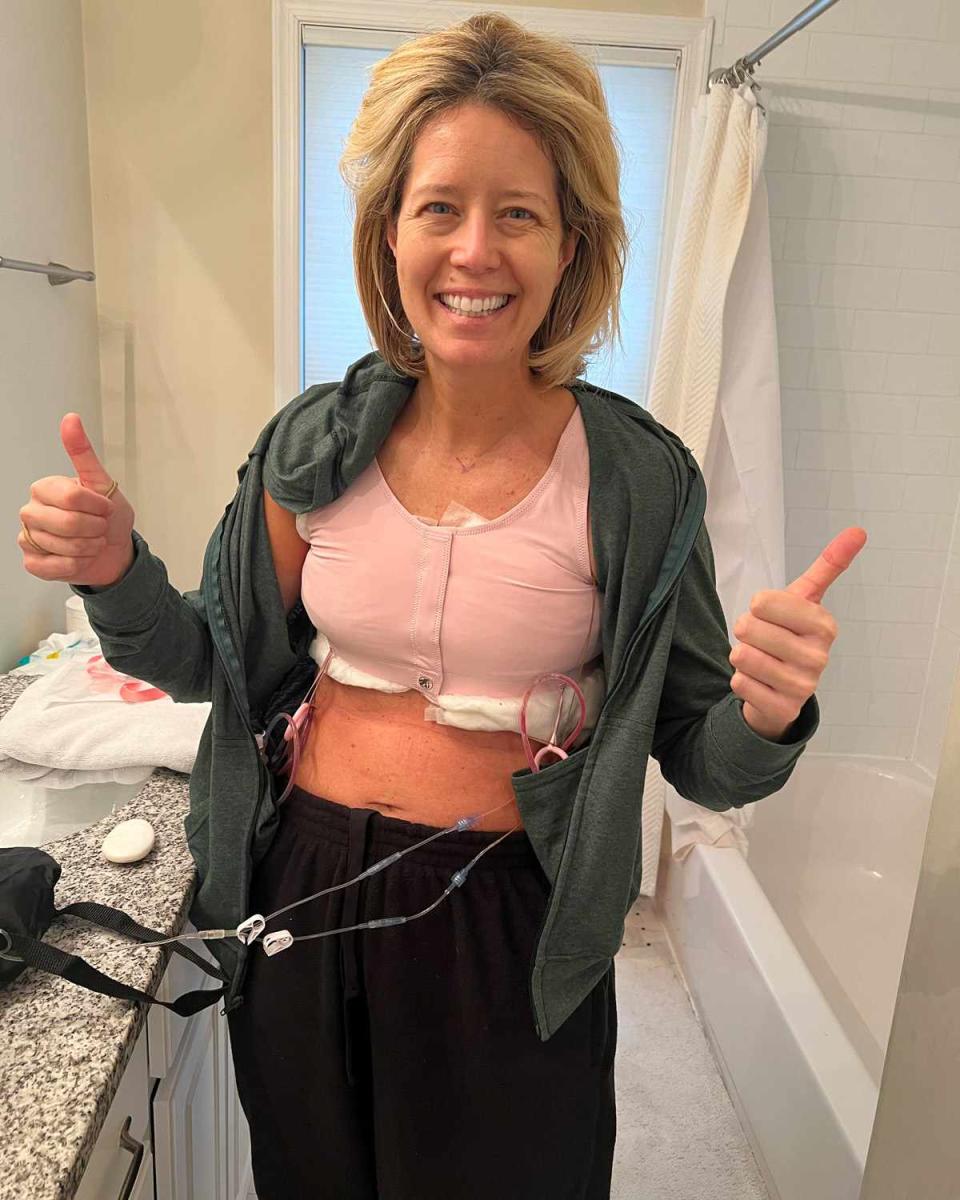
Courtesy of Sunlen Serfaty
Sunlen Serfaty after her double mastectomy and oophorectomyFor 11 years, Sunlen Serfaty watched her older sister battle two bouts of ovarian cancer. Because of the family history — including her late grandmother’s battle with breast cancer — the CNN correspondent was often encouraged by her doctors to get genetic testing. Even so, for a long time that wasn’t a priority, so she never did.
“But it was just this small voice in the back of my head, ‘You should just do this,’” the 43-year-old tells PEOPLE.
“And I was at my yearly checkup at the gynecologist after having my second baby and she said, ‘Hey, you want to do the blood test today?’ I said yes,” she recalls, of having the testing done in early 2021. “It was just a total whim decision but I think it was many years in the making of this little voice saying, ‘Do this.’”
A few days later, Serfaty received a chilling and life-changing call from her doctor.
“She started out the call saying, ‘Unfortunately…,’ and that moment is forever burned into my memory because you never want a phone call that starts with unfortunately,” she says.
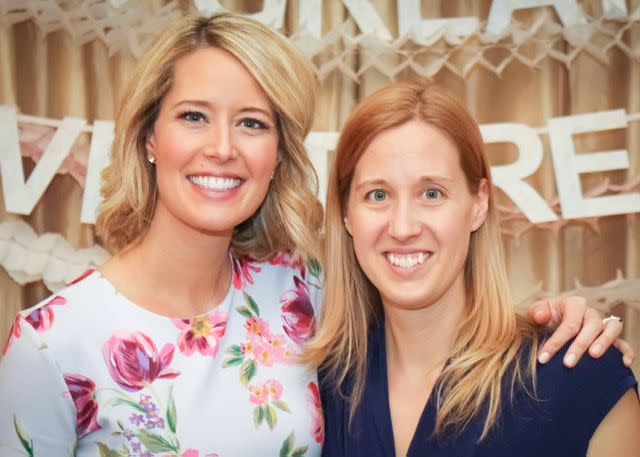
Kelly Long
Sunlen Serfaty and her sisterThe Emmy award-winning journalist was informed that she had a genetic mutation called Palb2, which can increase the risk of developing breast cancer and ovarian cancer by as much as 60%.
“That day was such a dark day for me because immediately I felt the weight of something big on my back,” she says. “I had two kids at the time. I was building this beautiful life with my family, and all of a sudden something was just laid on me that was uncontrollable. It was this ticking time bomb.”
“I went home and told my husband and it was almost like we pre-mourned what potentially could happen. We were almost grieving. It was a very hard conversation,” she adds. “And then the next morning I was like, ‘Okay, let's do something about this.’”
Serfaty spent the next few years going through a slew of doctor’s appointments and screenings. Every single doctor she saw told her she should get a preventative double mastectomy and that she “definitely” needed to remove her ovaries.
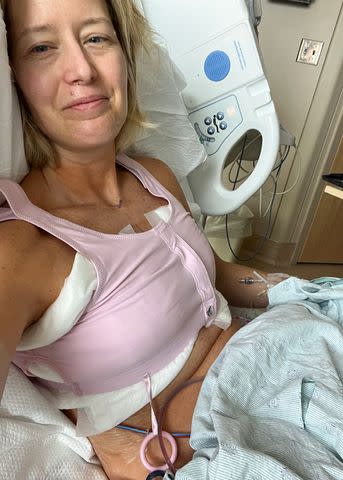
Courtesy of Sunlen Serfaty
Sunlen Serfaty after surgerySerfaty was ultimately referred to an oncologist at Sibley Memorial Hospital in Washington D.C. After welcoming another baby last year, she says it was a “non-decision” that it was time to get the preventative surgeries done.
Having watched her sister’s battles with ovarian cancer firsthand, she says that was more than enough motivation to be proactive.
“Knowledge is power,” she says. “It was just turning that unfortunate bit of information into action. And I think one of the things that probably made the decision very easy was because I felt so incredibly lucky to have this information. This is information my sister did not have.”
“I felt like I was given such a gift because I saw her struggle and I've seen the depths of her sadness. I've also seen the magnitude of her bravery,” she continues. “Seeing her go through that really inspired me to take control of my health to do the thing that she could not do. She could not change her outcome but I potentially can. It would've almost been an affront to her if I ignored it.”
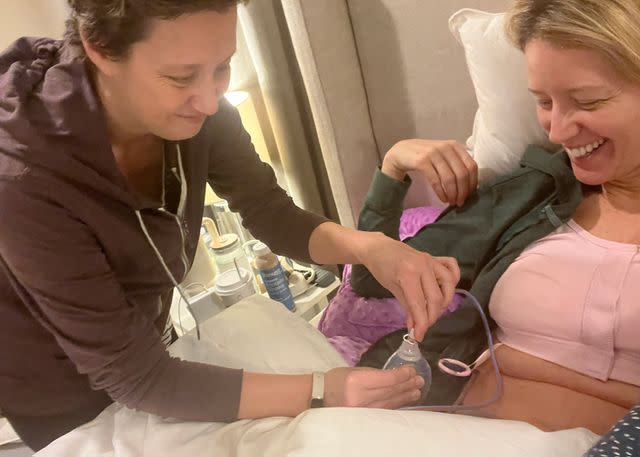
Courtesy of Sunlen Serfaty
Sunlen Serfaty's sister helping her after surgeryOn January 22, 2024 Serfaty underwent a double mastectomy to remove both breasts and an oophorectomy to remove both ovaries.
Serfaty boasts that, surprisingly, she wasn’t nervous about the procedure. She was even smiling while heading into surgery because she knew that it was the best decision for her family.
“I just wanted to get to that point where this is no longer on my back,” she admits, adding that her mind was focused on being there for her 6-year-old daughter, 4-year-old son and 7-month-old son.
Following a successful surgery, Serfaty was surrounded by her husband, children and sister as they helped her recover. She boasted that getting the surgery felt like a weight was taken off her shoulders.
“The first few weeks after surgery were very tough,” she says. “I'm doing physical therapy twice a week, which has really helped. But on the whole, I'm feeling really great. And the best thing is the mental load is off. I feel incredible relief knowing that this is not on my shoulders. I just feel such incredible gratitude to have control over my health when so many women do not have that control.”
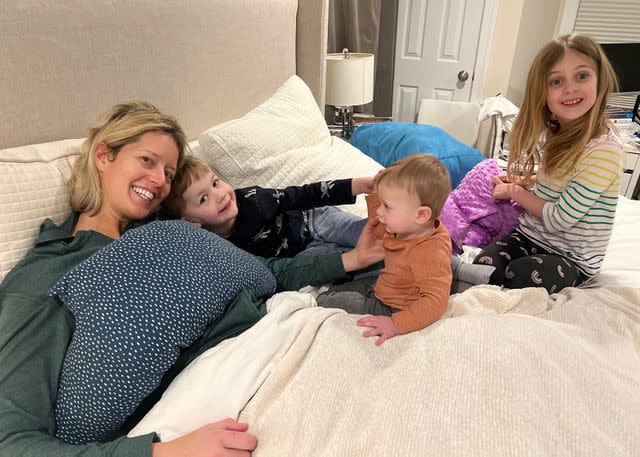
Courtesy of Sunlen Serfaty
Sunlen Serfaty recovering from surgery at home with her childrenNever miss a story — sign up for PEOPLE's free daily newsletter to stay up-to-date on the best of what PEOPLE has to offer, from celebrity news to compelling human interest stories.
Serfaty is now scheduled to undergo breast reconstruction surgery on May 6. While recognizing the privilege she has to be proactive about her health, she hopes sharing her story will encourage others to take that same control.
“This genetic screening potentially saved my life. This small blood test potentially gave me so many more years,” she tells PEOPLE. “And if I can be public about that message, if I can help another woman who may be considering getting this screening, I just want to say do it.”
“It's scary. It is. But you will be given a gift of knowledge if you know about your own potential health risk.”
For more People news, make sure to sign up for our newsletter!
Read the original article on People.

 Yahoo Movies
Yahoo Movies 
